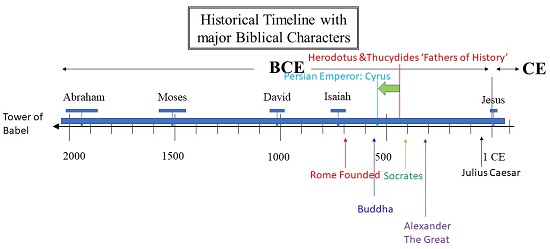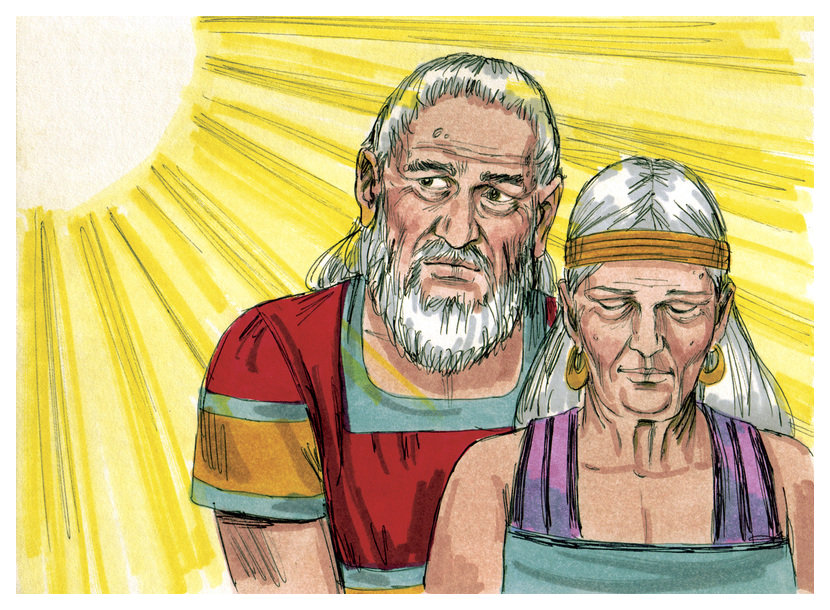Previously we saw that Abraham obtained righteousness simply by believing. That all-important sentence puts it like this:
Abram believed the LORD, and he credited it to him as righteousness.
Genesis 15:6
Belief is not about the existence of God

Think what ‘believe’ means. Many people think that ‘believe’ means believing that God exists. We think that God just wants us to believe that He is there. But the Bible states it differently. It says,
You believe that there is one God. Good! Even the demons believe that—and shudder.
James 2:19

Distant Shores Media/Sweet Publishing, CC BY-SA 3.0, via Wikimedia Commons
Here the Bible uses sarcasm to say that simply believing God exists makes us as good as the Devil. It is true that Abraham believed in God’s existence, but that is not the point of his righteousness. God had promised Abraham that He would give him a son. It was that promise that Abraham had to choose to believe or not. He had to make this choice even while he was in his 80’s and his wife was in her 70’s. He trusted that God would somehow fulfill that promise to him. Belief, in this account, means trust. Abraham chose to trust God for a son.
When Abraham chose to believe that promise of a son then God also gave him – ‘credited’ him– righteousness. In the end Abraham got both the fulfilled promise (a son from whom a great nation came) and also righteousness.
Righteousness – not from merit or effort
Abraham did not ‘earn’ righteousness. God ‘credited’ it to him. What is the difference? If you earn something you work for it – you deserve it. It is like receiving wages for the work you do. But when something is credited to you, it is given to you. You do not earn or merit it, but you do need to receive it.


We think that doing more good things than bad things, doing good deeds, or meeting obligations allows us to deserve or merit righteousness. Abraham proves this idea false. He did not try to earn righteousness. He simply chose to believe the promise offered to him, and then righteousness was given to him as well.
Abraham’s Belief: He bet his life on it
Choosing to believe in this promise for a son was simple but it was not easy. When he was first promised a ‘Great Nation’ he was 75 years old and he had left his home country and traveled to Canaan. Almost ten years had now passed and Abraham and Sarah still did not have a child – let alone a nation!
“Why has God not already given us a son if he could have done so”?, he would have wondered.
Abraham believed the promise of a son because he trusted God. He did so even though he did not understand everything about the promise. Nor did he have all his questions answered.
Believing the promise required active waiting. His whole life was interrupted while living in tents waiting for the promise. It would have been much easier to make excuses and return home to Mesopotamia (modern-day Iraq). His brother and family still lived there. Life was comfortable there.
His trust in the promise took priority over normal goals in life – security, comfort and well-being. He could have disbelieved the promise while still believing in the existence of God. He could have given up on the promise and still continued with religious activities and good deeds. Then he would have maintained his religion but not have been ‘credited’ righteousness.
Our Example
The rest of the Bible treats Abraham as an example for us. Abraham’s belief in the promise from God, and the crediting of righteousness, is a pattern for us. The Bible has other promises that God makes to all of us. We also have to chose whether we will trust them.
Here is an example of such a promise.
But to all who believed him and accepted him, he gave the right to become children of God. 13 They are reborn—not with a physical birth resulting from human passion or plan, but a birth that comes from God.
John 1:12-13
Today we know that the promise to Abraham came true. It is undeniable that the Jewish people today exist as that nation that came from Abraham. But like Abraham we face a promise today that seems unlikely and raises some questions. Like Abraham, we must choose to trust this promise – or not.
Who pays for Righteousness?
Abraham showed that God gives righteousness as a gift. When you get a gift you do not pay for it – otherwise it is not a gift. The giver of the gift is the one who pays. God, the giver of righteousness, will have to pay for righteousness. How will He do it? We see in our next article.
Leave a Reply